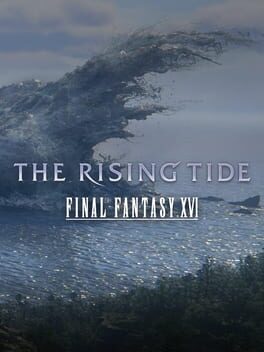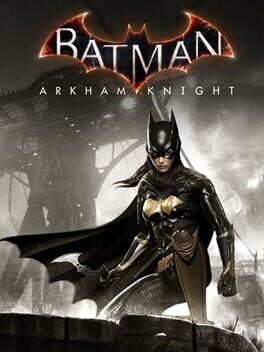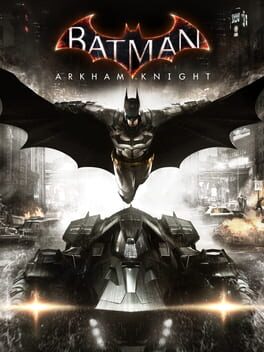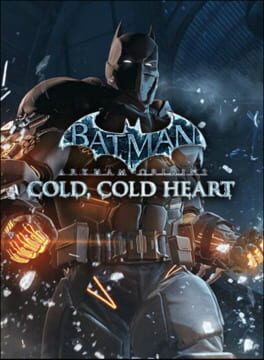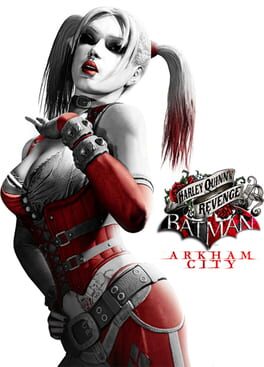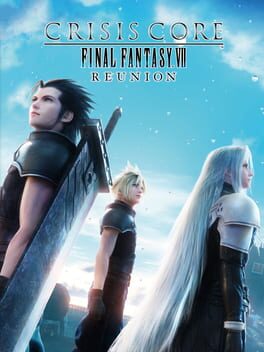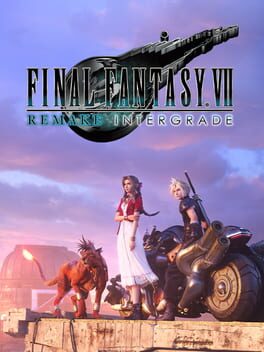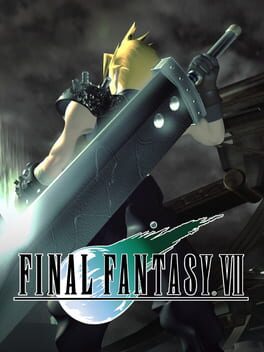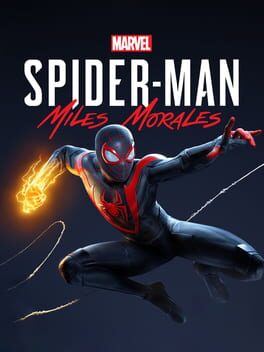Innes
BACKER
An excellent game that builds up on the promising foundations of Rebirth in almost every way, though a few minor issues hold it back from being perfect.
Combat is tightened up greatly from Remake, thanks partly to the addition of Synergy abilities; the characters, particularly the main cast, are just as endearing as they were in Remake; and the diverse settings are a very welcome change to the constant dreariness of Midgar.
A few minor issues keep it from being perfect, however. The pacing issues that occasionally plagued Remake once again rear their ugly head here, making some main story segments feel like more of a slog than they should. In a similar vein, the open-world objectives can also feel like somewhat of a slog as their design feels very reminiscent of the Ubisoft-esque open-world syndrome that plagued several games last decade.
Combat is tightened up greatly from Remake, thanks partly to the addition of Synergy abilities; the characters, particularly the main cast, are just as endearing as they were in Remake; and the diverse settings are a very welcome change to the constant dreariness of Midgar.
A few minor issues keep it from being perfect, however. The pacing issues that occasionally plagued Remake once again rear their ugly head here, making some main story segments feel like more of a slog than they should. In a similar vein, the open-world objectives can also feel like somewhat of a slog as their design feels very reminiscent of the Ubisoft-esque open-world syndrome that plagued several games last decade.
The Rising Tide is a decent enough DLC, though it suffers from many of the issues that plagued the FFXVI base game.
Having two more sets of Eikon abilities helps ease the repetitiveness of the base game's combat and the DLC's story, while short, does wrap up a few of the loose ends while also tying in nicely with Echoes of the Fallen. Finally getting to fight Tonberries in this game was also very fun.
Side quests are still as bland and tedious as ever, unfortunately, While the DLC's difficulty is stepped up just like EotT, a welcome change from the breeze that was the main game, the final boss can be frustrating and even borders on unfair with one of its mechanics in particular.
It's also very disappointing that completing the DLC has no impact whatsoever on the base game's ending, given how it vastly changes the situation surrounding the ending. Feels like a huge missed opportunity.
Having two more sets of Eikon abilities helps ease the repetitiveness of the base game's combat and the DLC's story, while short, does wrap up a few of the loose ends while also tying in nicely with Echoes of the Fallen. Finally getting to fight Tonberries in this game was also very fun.
Side quests are still as bland and tedious as ever, unfortunately, While the DLC's difficulty is stepped up just like EotT, a welcome change from the breeze that was the main game, the final boss can be frustrating and even borders on unfair with one of its mechanics in particular.
It's also very disappointing that completing the DLC has no impact whatsoever on the base game's ending, given how it vastly changes the situation surrounding the ending. Feels like a huge missed opportunity.
A short, but fulfilling side story that ties up some minor loose ends from the main story and provides a fun introduction to Mr. Freeze. While it won't blow you away, Cold, Cold Heart does a lot to improve over previous Arkham DLCs which have consistently felt pitifully short and underdeveloped. You get a new suit, some revamped gadgets, and a few sparse side quests in a condensed open world.
Ultimately though, it's still a 2-3-hour story that really doesn't add much to Origins or the Arkham series as a whole - an issue I've had with every Arkham DLC so far. It's fun, but not worth going out your way to play unless you're desperate for more Batman: Arkham.
Ultimately though, it's still a 2-3-hour story that really doesn't add much to Origins or the Arkham series as a whole - an issue I've had with every Arkham DLC so far. It's fun, but not worth going out your way to play unless you're desperate for more Batman: Arkham.
A strange and underwhelming DLC that adds almost nothing of value to the overall Arkham City package.
On top of being incredibly short with a completion time of around 90 minutes, Harley Quinn's Revenge serves as an incredibly poor epilogue to Arkham City. Outside of the intriguing premise of Batman seemingly feeling broken following the main story, which in itself is left entirely unresolved, the DLC does nothing to expand upon the state of the world after the ending.
Being able to play as Robin and use his unique gadgets is one of the few saving graces of this DLC, though you barely get a chance to do so as you only play as him for half of its already pitifully small runtime. Batman is controlled for the rest of the DLC and plays exactly the same as he did in the main game.
On top of being incredibly short with a completion time of around 90 minutes, Harley Quinn's Revenge serves as an incredibly poor epilogue to Arkham City. Outside of the intriguing premise of Batman seemingly feeling broken following the main story, which in itself is left entirely unresolved, the DLC does nothing to expand upon the state of the world after the ending.
Being able to play as Robin and use his unique gadgets is one of the few saving graces of this DLC, though you barely get a chance to do so as you only play as him for half of its already pitifully small runtime. Batman is controlled for the rest of the DLC and plays exactly the same as he did in the main game.
2024
Aside from minor issues like some outdated and badly written social links, end-game difficulty being a joke on normal and some of the Reload OST arrangements feeling weaker than the originals (looking at you Unavoidable Battle), Persona 3 Reload is a fantastic remake of, arguably, one of the best JRPGs ever made.
Reload manages to walk the very fine line of remaining faithful to the original game while introducing a ton of QoL changes that elevates and fleshes out both the story, which was already the best of the 3D Persona games, and gameplay, with it now being on par with Persona 5 Royal.
While it's disappointing that the absence of FeMC and The Answer being relegated to DLC stops Reload from being the absolute definite edition of Persona 3, their exclusion doesn't detract from how excellent this game is - especially for first-timers.
Reload manages to walk the very fine line of remaining faithful to the original game while introducing a ton of QoL changes that elevates and fleshes out both the story, which was already the best of the 3D Persona games, and gameplay, with it now being on par with Persona 5 Royal.
While it's disappointing that the absence of FeMC and The Answer being relegated to DLC stops Reload from being the absolute definite edition of Persona 3, their exclusion doesn't detract from how excellent this game is - especially for first-timers.
This review contains spoilers
One of the best Like A Dragon/Yakuza gameplay experiences yet that's sadly hampered by some very strange plot decisions.
Combat is improved in almost every way from Yakuza: Like A Dragon, the side content is consistently excellent, and there's a ton of throwbacks to reward series veterans. Looking purely from a gameplay perspective, this is the best Like A Dragon title yet - apart from maybe Yakuza 0.
All of which makes the issues with its plot even more disappointing. The ending is particularly deflating and left me legitimately thinking, "oh, that's it?" For better and for worse, these issues aren't apparent until the latter half of the game, making for an excellent first impression but leaving you feeling like much of the story's intrigue was wasted towards the end.
Combat is improved in almost every way from Yakuza: Like A Dragon, the side content is consistently excellent, and there's a ton of throwbacks to reward series veterans. Looking purely from a gameplay perspective, this is the best Like A Dragon title yet - apart from maybe Yakuza 0.
All of which makes the issues with its plot even more disappointing. The ending is particularly deflating and left me legitimately thinking, "oh, that's it?" For better and for worse, these issues aren't apparent until the latter half of the game, making for an excellent first impression but leaving you feeling like much of the story's intrigue was wasted towards the end.
This review contains spoilers
I really tried to like Crisis Core but even with its Reunion facelift, it's just... not very good in the simplest of terms.
There are a few good elements here. For one, the combat, which was pretty clearly inspired by FF7 Remake, felt fun and satisfying - easily my favorite part of the whole game. I'm also glad they expanded on what led to Sephiroth's descent to madness, something I felt was a bit lacking in the OG FF7.
All of that, however, is hampered by a completely nonsensical plot that leaves you wondering what Tetsuya Nomura was on while writing this and where you can get some. In addition, dialogue is stiff and awkward, even by late-2000s PSP title standards, and the fairly easy difficulty is made laughable in the endgame thanks to the insane stat boosts that are easily obtained through Materia Fusion.
By FAR the worst aspect, however, is the repetitive, unrewarding, and frankly boring Missions. Almost all of them follow the same monotonous design structure of being dropped in a small dungeon (of which there are only around 10 different environments to cover 300 missions, which in itself becomes repetitive) with chests dotted around the map and a boss to kill. Thankfully, you only have to complete around 20% of these to keep up with the game's power curve.
There are a few good elements here. For one, the combat, which was pretty clearly inspired by FF7 Remake, felt fun and satisfying - easily my favorite part of the whole game. I'm also glad they expanded on what led to Sephiroth's descent to madness, something I felt was a bit lacking in the OG FF7.
All of that, however, is hampered by a completely nonsensical plot that leaves you wondering what Tetsuya Nomura was on while writing this and where you can get some. In addition, dialogue is stiff and awkward, even by late-2000s PSP title standards, and the fairly easy difficulty is made laughable in the endgame thanks to the insane stat boosts that are easily obtained through Materia Fusion.
By FAR the worst aspect, however, is the repetitive, unrewarding, and frankly boring Missions. Almost all of them follow the same monotonous design structure of being dropped in a small dungeon (of which there are only around 10 different environments to cover 300 missions, which in itself becomes repetitive) with chests dotted around the map and a boss to kill. Thankfully, you only have to complete around 20% of these to keep up with the game's power curve.
FF7 Remake feels more like a very promising foundation for the next two games in this trilogy rather than a great standout title on its own.
It's certainly enjoyable, mainly thanks to its excellent writing and characters which kept me hooked, but a few minor issues stopped me from really loving FF7 Remake as its own game: The slow pacing due to excessive padding, the incredibly linear progression aside from a few open areas; and very repetitive environments of narrow, washed-out corridors.
I also wasn't a huge fan of the combat and boss mechanics of the base game, though both were greatly improved in the Intermission DLC - the changes of which appear to be reappearing in Rebirth and beyond.
It's certainly enjoyable, mainly thanks to its excellent writing and characters which kept me hooked, but a few minor issues stopped me from really loving FF7 Remake as its own game: The slow pacing due to excessive padding, the incredibly linear progression aside from a few open areas; and very repetitive environments of narrow, washed-out corridors.
I also wasn't a huge fan of the combat and boss mechanics of the base game, though both were greatly improved in the Intermission DLC - the changes of which appear to be reappearing in Rebirth and beyond.
I'm split on Like A Dragon Gaiden: The first and final chapters of the game are great and feature some of the best story elements in the Like A Dragon franchise yet. The bridging chapters between them though? Not so much.
+ The new agent combat style is ridiculous in the best way possible and really helps spice up the usual LAD beat-em-up combat loop.
+ The finale chapter is fantastic and feels like a special reward to long-time fans. That heartwrenching scene in particular is arguably one of the best in the franchise's history.
- The story's pacing is bizarre in the middle, locking you out on a few occasions to do side activities at the coliseum or substories. It felt somewhat reminiscent of XC2: Torna - The Golden Country locking its final story section behind side quests, though Gaiden's pacing isn't quite that bad.
- The upgrade power curve here is much stronger than other LAD titles which makes the latter half of the game a bit of a joke difficulty-wise. However, this in turn makes Agent style even more stupidly fun so this might be a positive for you!
- I wasn't a huge fan of the Akame Network. It's a neat concept but I ultimately felt like it took away from the spontaneous bizarrely of substory introductions on top of the map being filled with fairly basic and mundane combat or fetch quests.
+ The new agent combat style is ridiculous in the best way possible and really helps spice up the usual LAD beat-em-up combat loop.
+ The finale chapter is fantastic and feels like a special reward to long-time fans. That heartwrenching scene in particular is arguably one of the best in the franchise's history.
- The story's pacing is bizarre in the middle, locking you out on a few occasions to do side activities at the coliseum or substories. It felt somewhat reminiscent of XC2: Torna - The Golden Country locking its final story section behind side quests, though Gaiden's pacing isn't quite that bad.
- The upgrade power curve here is much stronger than other LAD titles which makes the latter half of the game a bit of a joke difficulty-wise. However, this in turn makes Agent style even more stupidly fun so this might be a positive for you!
- I wasn't a huge fan of the Akame Network. It's a neat concept but I ultimately felt like it took away from the spontaneous bizarrely of substory introductions on top of the map being filled with fairly basic and mundane combat or fetch quests.
2023
Final Fantasy XVI is a five-star movie embedded in a three-and-a-half-star video game.
Writing, story, and characters are the strong suit here, unsurprising as it's helmed by Naoki Yoshida and the wider team behind Final Fantasy XIV, where the same elements also shine. XVI being one of the most visually striking games I've ever played also goes a long way in elevating those factors.
It's a shame then, that the gameplay of XVI didn't reach match those high standards for me. The game is certainly fun, no doubt about that, but combat has the long-term depth of a puddle - mainly thanks to Clive's moveset not evolving beyond the first quarter of the story. The regular introduction of new Eikons and abilities helped somewhat with this but the core hack-and-slash gameplay becomes repetitive before long.
The side quest design and pacing are also fairly questionable. Don't get me wrong, some of them are excellent and do a fantastic job of getting across the Bearers' plight. But many, particularly the massive bunch that gets dumped on you all at once before the final main quest, feel like monotonous MMO-esque fetch quests - perhaps a side effect of the dev team coming from long-time MMO development.
Writing, story, and characters are the strong suit here, unsurprising as it's helmed by Naoki Yoshida and the wider team behind Final Fantasy XIV, where the same elements also shine. XVI being one of the most visually striking games I've ever played also goes a long way in elevating those factors.
It's a shame then, that the gameplay of XVI didn't reach match those high standards for me. The game is certainly fun, no doubt about that, but combat has the long-term depth of a puddle - mainly thanks to Clive's moveset not evolving beyond the first quarter of the story. The regular introduction of new Eikons and abilities helped somewhat with this but the core hack-and-slash gameplay becomes repetitive before long.
The side quest design and pacing are also fairly questionable. Don't get me wrong, some of them are excellent and do a fantastic job of getting across the Bearers' plight. But many, particularly the massive bunch that gets dumped on you all at once before the final main quest, feel like monotonous MMO-esque fetch quests - perhaps a side effect of the dev team coming from long-time MMO development.
2012
Final Fantasy 7 doesn't quite topple 6 as my favourite traditional FF game but so glad I finally sat down and experienced it. FF7 remains a very fun game nearly 27 years on from release but it's undeniable that it's aged, particularly so in certain aspects.
The characters, story, and OST are all the strongest I've seen in a FF game yet. The cast is well-rounded and filled with engaging characters that I wanted to see more of (except Cait Sith, fuck Cith Sith), blended with a plot that, while somewhat wacky, really feels like Squaresoft wanted to up the ante versus 4 and 6 in particular. The soundtrack has been praised to death and back so I won't focus on it too much but my god, take a bow Uematsu.
Two big factors bring this game down for me, however: 1) The game as a whole is VERY dated. Its early 3D visuals are the most apparent culprit of this, which don't hold up nearly as well as the pixel-art style of the previous games, but its, at times, confusing game direction and outdated writing also suffer from this.
2) The Materia system. While I think it's a really interesting idea that allows for a ton of core combat variety, it comes at the expense of the party themself feeling unique. In FF6 for example, each party member felt they were distinct in their combat role with their unique abilities that were aided by Espers. In 7 meanwhile, all those unique abilities are wrapped up in Materia that can be given to anyone, on top of stat differences being negligible, making the entire party feel somewhat homogenized. Limit Breaks help a little bit with this but they don't crop up nearly often enough to be a significant factor.
The characters, story, and OST are all the strongest I've seen in a FF game yet. The cast is well-rounded and filled with engaging characters that I wanted to see more of (except Cait Sith, fuck Cith Sith), blended with a plot that, while somewhat wacky, really feels like Squaresoft wanted to up the ante versus 4 and 6 in particular. The soundtrack has been praised to death and back so I won't focus on it too much but my god, take a bow Uematsu.
Two big factors bring this game down for me, however: 1) The game as a whole is VERY dated. Its early 3D visuals are the most apparent culprit of this, which don't hold up nearly as well as the pixel-art style of the previous games, but its, at times, confusing game direction and outdated writing also suffer from this.
2) The Materia system. While I think it's a really interesting idea that allows for a ton of core combat variety, it comes at the expense of the party themself feeling unique. In FF6 for example, each party member felt they were distinct in their combat role with their unique abilities that were aided by Espers. In 7 meanwhile, all those unique abilities are wrapped up in Materia that can be given to anyone, on top of stat differences being negligible, making the entire party feel somewhat homogenized. Limit Breaks help a little bit with this but they don't crop up nearly often enough to be a significant factor.
Miles Morales acts as both a great interlude between the original Spider-Man and Spider-Man 2 on top of being a short but really sweet game in its own right - clocking in at around 14 hours for 100% completion without NG+ extras.
There's tons of improvements here to cut down on some of the monotony that featured in Spider-Man 1, especially combat and traversal-wise that I hope get built upon even more in Spider-Man 2. Writing and characters are just as strong as the first game too with its main antagonist being a particular highlight.
I do wish there were more fleshed side quests as opposed to the somewhat samey objectives scattered across the map - something that seems to plague many an open world game. The few proper side quests Miles Morales does have, though, are excellent.
There's tons of improvements here to cut down on some of the monotony that featured in Spider-Man 1, especially combat and traversal-wise that I hope get built upon even more in Spider-Man 2. Writing and characters are just as strong as the first game too with its main antagonist being a particular highlight.
I do wish there were more fleshed side quests as opposed to the somewhat samey objectives scattered across the map - something that seems to plague many an open world game. The few proper side quests Miles Morales does have, though, are excellent.
2012

